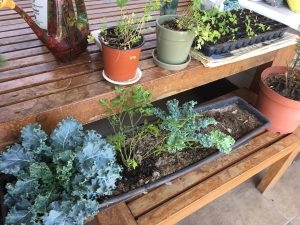Whilst reading Introduction by Tuhiwai Smith, Tuck & Yang I couldn’t help but think about how colonization is deeply rooted on our behavior, as well as on the academic landscape. At first glance, it was overwhelming to have gained awareness of how damaging colonization has been to the land, culture and our hectic modern lifestyles, yet after a few more reads I found hope that we could reshape some aspects of our behavior. Although the reading very clearly explains the concept of decolonization and urges us to understand that it’s not merely I metaphor, I believe that the alternatives that the authors pose to shift our habits to include indigenous knowledge are really innovative. I particularly liked the focus that Tuhiwai Smith poses on pedagogy and how Western notions of education attempt to “fix” Indigenous knowledge under the idea that they “know better”, when academia could easily include Indigenous scholars into the curriculum. I was especially drawn to Smith’s introduction to the second chapter, which talks about how we could take a land-centered approach to education, and understand that ultimately, it’s our first teacher so we can engage with our history through the land and become our relationships with others.
The concepts put forward in Introduction stuck with me even when looking at the other readings, and I found that these ideas are also seen when we talk about food. Before reading Belasco’s text, I had an extremely superficial view on food, which aligned greatly with the Industrialized perspective of food distribution and consumption. The reading managed to expand my horizons on the concept of food, and I was surprised to find the fascinating philosophy that lies behind it. It allowed me to be self-aware of the fact that I have too been conditioned to forget about the thrill and excitement of enjoying a meal, and understanding its journey to the table. This was the reading that I enjoyed the most given that it prompted me to gain a new perspective on food, and helped me to connect with my eating habits and how I can change them in a way that I can make it enjoyable.
For instance, I’ve always been aware of the fact that my mom keeps a vegetable garden in the house, so we get most of our ingredients and spices from there, yet I never acknowledge the effort and care that goes into harvesting it for consumption. After reading Belasco’s text, I immediately asked my mom to help me learn her process, so now we’re growing our food together! It has been an incredible to connect with my mom and the land in which I’m located, since we are growing tons of native goods with traditional agricultural techniques.
ps. Here is a picture of a couple of veggies we’ve been growing 🙂


Hi there! I really liked your thoughts on this weeks’ readings. I agree – I think the Western education system has a lot to learn from Indigenous ways of thinking and teaching. A lot of Indigenous teachings stem from the tradition of “storytelling” which makes teachings easier to learn, in my opinion, than in the pressure-filled and oversaturated, somewhat boring world of Western academia… just my opinion. Imagine if all education took a land-based approach to learning? After all, like you said, isn’t that where we all come from?
I also like how you connect the “Introduction” to food studies. Food is our lifeline and it comes from the land and so can be a good conduit for marrying the ideas of education and land. I also thought it was interesting that one of the shifts that’s taken place in the food industry has been to widen the gap between producer and consumer. I just got back from a subsistence harvest with my dad (moose) and it was a huge teacher for me in this regard, as I got to see the labour involved with harvesting food for my family each year as well as firsthand seeing the implications of taking another being’s life… important stuff.
Hi! What stood out to me about Smith, Tuck and Yang’s text was the part about how Western education attempts, like you highlight in your post, to “fix” indigenous knowledge, suggesting that they know better or know the real truth. This reminds me of the education I received in elementary school and high school. For example, I remember learning about Columbus’s “discovery” in October of 1492, and it was taught from a very European perspective. There was significantly less attention payed to the Indigenous peoples.